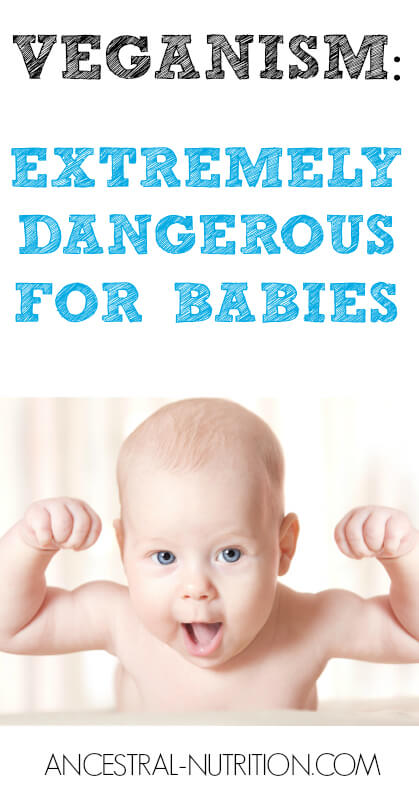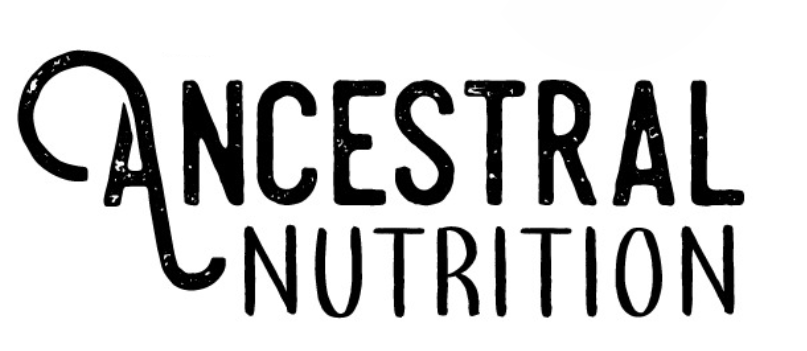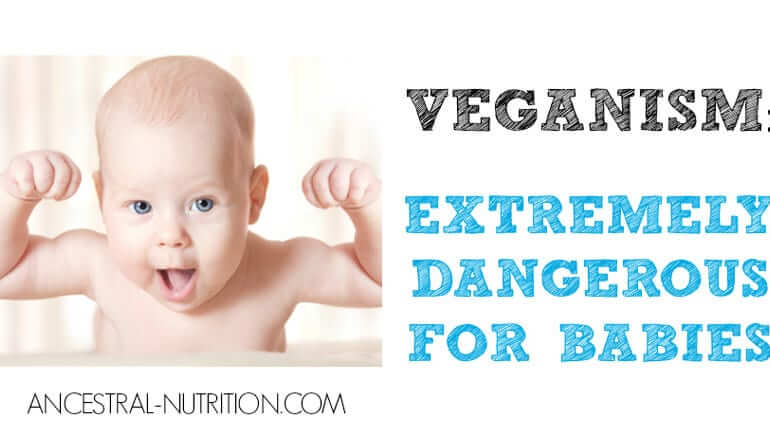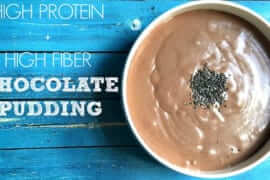First of all, let me say that I respect the choice of an adult to make a diet decision.
But I recently read an article in which actress Jenna Dewan said of her daughter,
”She eats fruits and veggies and nothing else.”
Nothing else? Where is this baby going to get her EPA and DHA? What about healthy fats in general? And vitamin A (retinol)? What about B12? Babies have died from lack of vitamin A and B12!
To be clear, I don’t believe that any parent who feeds their child a vegan diet means to hurt them. I don’t think they’re even aware of the dangers tied to feeding a baby a plant-based diet.
As a society, we often equate a vegan diet with health while turning up our noses at animal products. But eating a vegan diet is not the same as being healthy. As a result, there are very real dangers associated with it.
In doing research for this article, I found out that babies have died due to a vegan diet. Therefore, I ask that you please read this article before continuing.
Especially relevant, I doubt any of these parents thought they were doing something wrong. Parents feed their children plant-based diets because they think it’s a healthy option (I assume). By no means do I think it’s intentional. But when a 12-year-old girl has the spine of an 80-year-old woman, we need to address this very serious issue.
We judge women who drink, smoke and do drugs while pregnant. But how is it not okay to smoke and drink while pregnant, so why is it okay to eat badly? When cancer, diabetes (types 1 and 2), heart disease and childhood obesity are on the rise, we need to take action. After all, the consequences are equally as dire.
The problem with vegan pregnancies and babies is that this diet is considered healthy by most people’s standards.
But the Natural Hygiene Society compiled a list of babies who died from either being fed a vegan diet or died from being fed breast milk from a vegan mother. Would this exist for a healthy diet? Seems like a “no” to me.
As a result, we need to ask at what point do we say: okay, maybe these parents didn’t just go about their diet the wrong way. Maybe the diet is inherently flawed.
Let’s explore what is needed to grow a healthy human that is lacking from a vegan diet.
B12
To be blunt, B12 is produced in the gut of animals and it is literally impossible to obtain from plants (they do not store it).
From The Department of Pediatrics at University of Maryland,
Most of the initial data regarding vitamin B12 deficiency in infancy are from case studies of infants exclusively breastfed by mothers on vegan, vegetarian, or lacto-ovo vegetarian diets. Several authors have described developmental retardation and “infant tremor syndrome” in 4- to 11-month-old infants of vegetarian mothers from India [7, 8]. Four case studies from the United States described lethargy, irritability, and developmental delay among exclusively breastfed infants (ages 6 to 10 months) of vegan or vegetarian mothers [9–12].
Restoration of developmental skills after therapy was variable, with at least two cases reporting ongoing delays [9, 12], and one reporting developmental recovery [11]. Similar cases have been reported from Europe [13–17]. Again, the infants displayed delayed motor skills, along with lethargy, and were exclusively breastfed by mothers who were vegan or lacto-ovo vegetarian. After therapy, recovery was variable, with some children remaining moderately or severely retarded [13,17–19].
B12 deficiency in a growing child can lead to permanent mental retardation, neurological disorders, tremors, stunted growth, delayed cognitive development and cerebral atrophy.
According to doctors from McGill University,
Plant foods are not a high-quality source of vitamin B12. Thus, it is not surprising that studies have shown low serum concentrations of vitamin B12 in children on vegan and macrobiotic diets without supplementation (4). Vitamin B12 deficiency is not a benign condition; it may lead to megaloblastic anemia and neurological disorders. Mild vitamin B12 deficiency in infancy, with or without hematological signs of deficiency, may be associated with impaired cognitive performance in adolescence, specifically, fluid intelligence (which involves reasoning, the capacity to solve complex problems, abstract thinking ability and the ability to learn), spatial ability and short-term memory (17).
Moreover, lack of cobalamin may lead to long-term neurological disorders in infants and toddlers fed vegetarian diets (18). In addition, recent data indicate that the adverse effects of cobalamin deficiency in the macrobiotic community may not be restricted to just early childhood, but may also cause symptoms related to impaired cobalamin status later in life. Even a change to a lacto-ovo-vegetarian or omnivorous diet at six years of age is not sufficient to restore normal cobalamin status in previously strict macrobiotic adolescents (19).
Hence, the best forms of B12 are grass-fed beef, seafood, liver, pastured egg yolks and raw dairy.
Vitamin A (Retinol)
Most people think that vitamin A can be obtained from orange colored veggies. Think carrots, pumpkin, and squash.
The truth is that these veggies contain the precursor to Vitamin A: beta-carotene. True vitamin A is retinol, and only a very small percentage of beta-carotene can be effectively converted to retinol. In children, this conversion is nearly impossible.
Vitamin A deficiency leads to impaired eyesight, increases susceptibility to infection, impaired cell growth, and when combined with vitamin B12 deficiency can lead to death.
The foods highest in REAL vitamin A are cod liver oil, liver, grass-fed beef, oily fish and raw dairy products.
Iron
There are two types of iron: heme and non-heme. Heme is easily absorbed and assimilated and comes from food like grass-fed beef.
Furthermore, symptoms of iron deficiency include irritability, loss of appetite (which is crucial for babies), pale skin, brittle nails, weakness and overall lethargy.
Vitamin D
Adequate amounts of vitamin D are critical for pregnancy and for growing children. Vitamin D deficiency can lead to:
- tooth growth delay and decay
- neurological disorders including seizures
- rickets
- soft bones, bone deficiencies, eventually osteoporosis
- increased susceptibility to infection
- respiratory disorders
- irritability, aggression, and depression
- rickets
- poor growth
- muscle spasms
- diabetes
- cancer
The best forms of vitamin D are from cod liver oil, oily seafood, liver and pastured egg yolks.
This 12-year-old girl was admitted to a hospital suffering from severe vitamin D deficiency.
EPA and DHA
EPA (eicosapentaenoic acid) and DHA (docosahexaenoic acid) are omega-3 fatty acids. Initially, people assume that vegan sources (like flax and chia) provide sufficient omega-3 fatty acids. This is not correct.
Flax and chia are rich in ALA (alpha-linoleic acid). ALA is not as beneficial to the brain or to development. Furthermore, babies cannot convert ALA into DHA.
From the American Society for Nutrition,
Synthesis of DHA and EPA occurs in phytoplankton and animals, but not plants. DHA and EPA are absent from all vegetable fats and oils, including nuts, grains, and seeds and are also very low in ruminant fats, including milk and dairy products. The richest dietary sources are fish and sea foods, but poultry and eggs provide lower, but important, sources of EPA and DHA (4).
Notably, DHA and EPA are particularly important during the first six months of life. Adequate intake of EPA and DHA are necessary for proper brain, nervous system and cognitive development.
In addition, a lack of beneficial omega-3 fatty acids can lead to:
- depression, anxiety, irritability
- cognitive impairment
- cardiovascular disorders
- neurological abnormalities
- ADD/ADHD
- autism
- autoimmune disease
- cancer
It’s about fat!
In short, babies need fat! Saturated fat composes roughly half of our cell membranes. Over 60% of the brain is fat. As a result, if a baby is not getting adequate amounts of fat, the baby’s health will undoubtedly suffer.
Healthy fats are rich in vitamins (the fat-soluble vitamins are A, E, D, and K). In addition, grass-fed butter, pastured egg yolks, wild fish, cod liver oil, coconut oil, avocado oil and olive oil contain healthy fats.
There has never, ever been a vegan culture.
At no point in history have parents limited their children’s diet to plant-based foods. Traditional cultures have a wisdom that we’ve forgotten, or just ignored.
The common argument to this is, “I’ve seen vegan mothers raise healthy vegan babies.” Yet you’ve likely seen a lot more mothers feed themselves and their children complete junk. But the children seem to be healthy all the same.
The truth is that there has never been a vegan culture. In addition, there have never been several consecutive generations of vegans. Ever.
Like I said at the beginning of this article, I respect the dietary choices of an adult. But I cannot accept a diet that has killed babies.
Some people will not receive this article well.
Honestly, I don’t care. Call it what you want.
But children have died because of this misguided diet. If I can promote discussion of the topic, or educate a mother who may have otherwise adopted a vegan diet, then I’ve done my job.
Please leave your thoughts, whether you agree or disagree, in the comments section below.

Sources:
http://www.contactmusic.com/story/jenna-dewan-tatum-s-baby-is-a-vegetarian_4036743
http://www.ncbi.nlm.nih.gov/pmc/articles/PMC3137939/
http://www.ncbi.nlm.nih.gov/pubmed/17729202
http://www.ncbi.nlm.nih.gov/pmc/articles/PMC2528709/
http://pediatrics.aappublications.org/content/99/2/255.extract
http://www.supernutritionusa.com/images/pdfs/VitaminALongVersion.pdf




